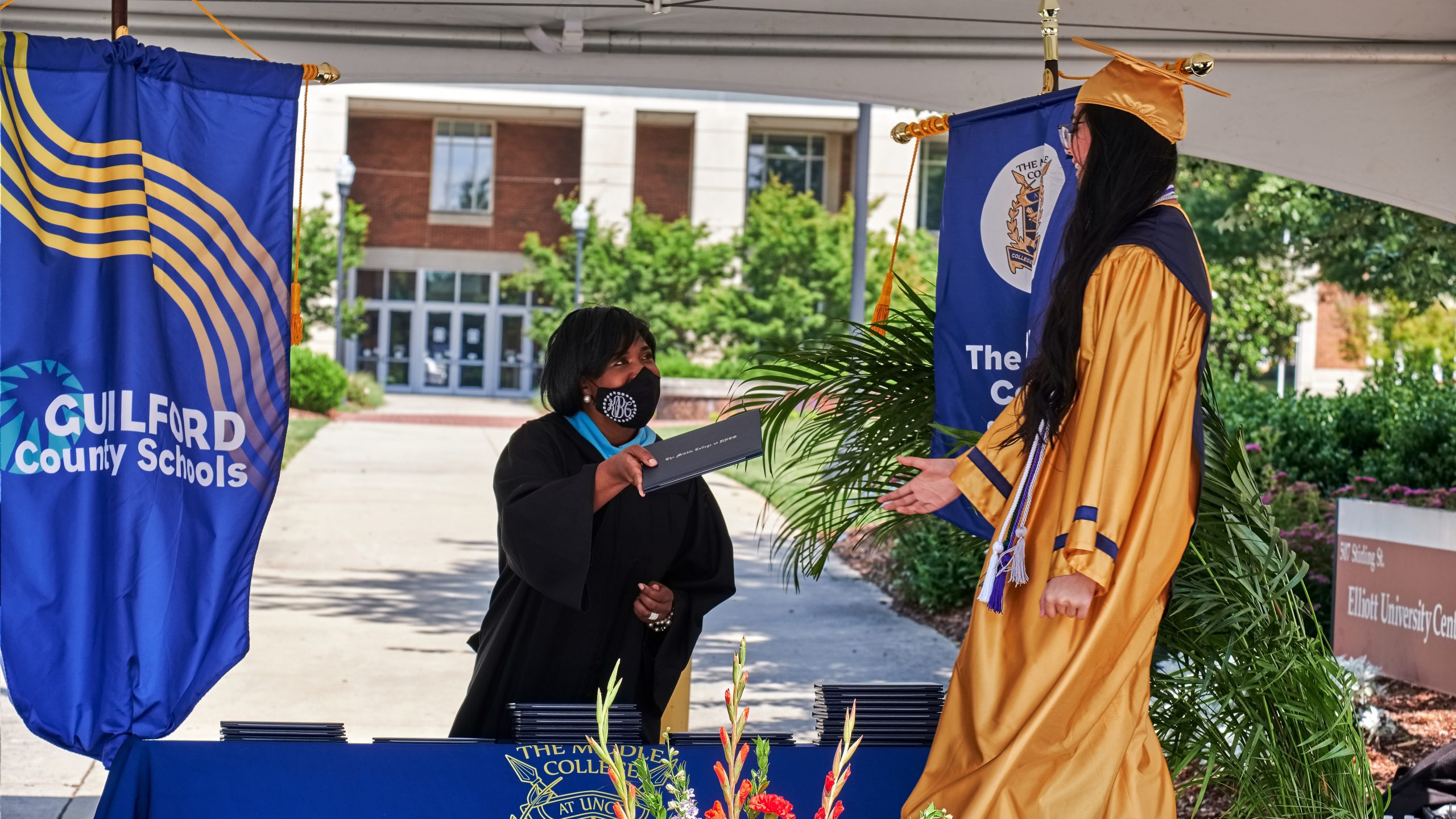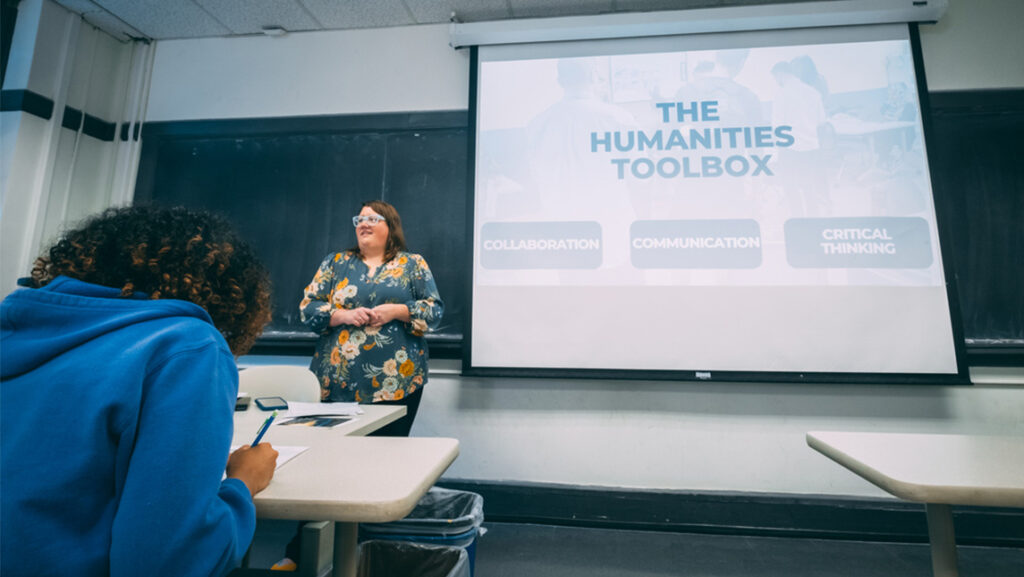UNC Greensboro’s Early College Research Center launched this fall, building on nearly two decades of research and a national reputation for expertise in the field.
“Early college is an innovative model of schooling that blurs the line between high school and college, creating a more seamless education system,” says center director Dr. Julie Edmunds. “The aim is to break down barriers that prevent students from accessing college degrees and other certifications, which are increasingly critical for success.”
Early colleges integrate the high school and college experiences. Focused on students who might otherwise struggle to attend college, these schools give students the opportunity to simultaneously earn a high school diploma and an associate degree or two years of college credit. In North Carolina, they are typically found on college campuses and are called cooperative innovative high schools or sometimes middle colleges.
UNCG is home to the nation’s largest body of original research on early college outcomes, including the first and longest experimental study, which has tracked the trajectories of 4,000 North Carolina students for 16 years.
“Our studies show that the early college model is one of the best ways to increase students’ access to and success in postsecondary education,” says Edmunds, whose team’s work has received almost $19 million in research funding over the last two decades.
Benefits of participation in early college programs include fewer suspensions, better attendance, better high school graduation rates, higher credential attainment after high school, shorter times to degree attainment, and increased financial savings. The programs also benefit a broad swathe of students, the researchers say, not just academic highflyers.
“Early college and related initiatives represent a different way of thinking about our education system,” says Edmunds, who published a Harvard Education Press book on the topic this year, with longtime collaborators from RAND Corporation and RTI International. “It’s an approach that brings secondary and postsecondary education – high school and college and other certifications – together.”
In recent years, Edmunds and her colleagues have also evaluated six large-scale, federally-funded efforts to implement early college strategies in traditional high schools across the country. “While there are limits to how many students can access more specialized programs, we can apply many of the lessons we have learned from these programs to all high schools,” she says.
UNCG’s Early College Research Center takes its place among over 260 UNC System centers and institutes, which are designed to bring experts across disciplines together to address complex issues, often in collaboration with government and industry partners.
“The center will help increase the visibility of the early college model and serve as a nexus of expertise and research to assist schools and students,” says UNCG Vice Chancellor for Research and Engagement Terri L. Shelton.
“Building on existing faculty and research strength, the Early College Research Center is a tangible example of UNC Greensboro’s commitment to generating new knowledge and translating that research into policy and practice that promote success for all students, not only in North Carolina but nationally,” says UNCG Chancellor Franklin D. Gilliam, Jr.
In addition to continuing research on the early college model, the center will explore related topics such as dual enrollment – which allows high school students to enroll in college courses – and equity.
“The early college model was developed to assist underserved students,” says Edmunds. “We want to ensure all students have access to the benefits of a more seamless system.”
by Sangeetha Shivaji
photo from UNCG Middle College graduation in 2020, by Martin W. Kane



